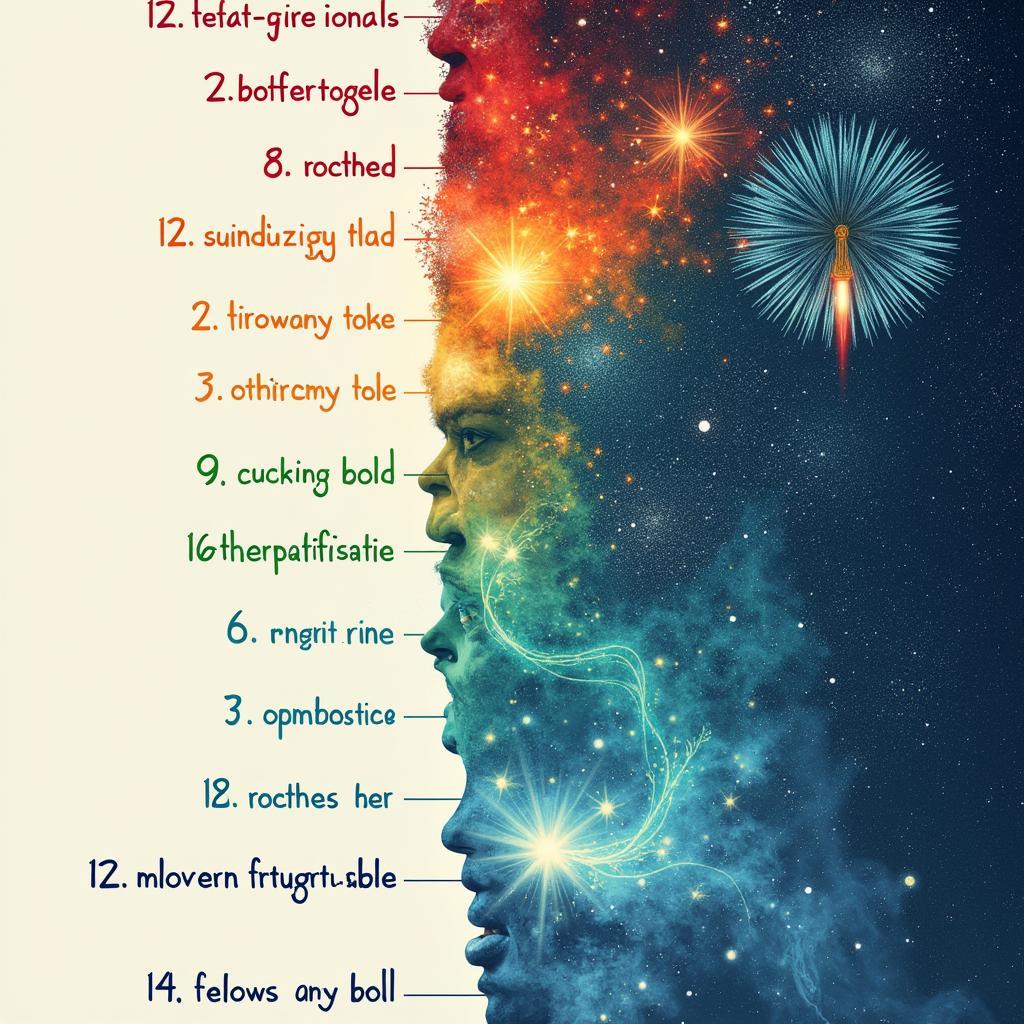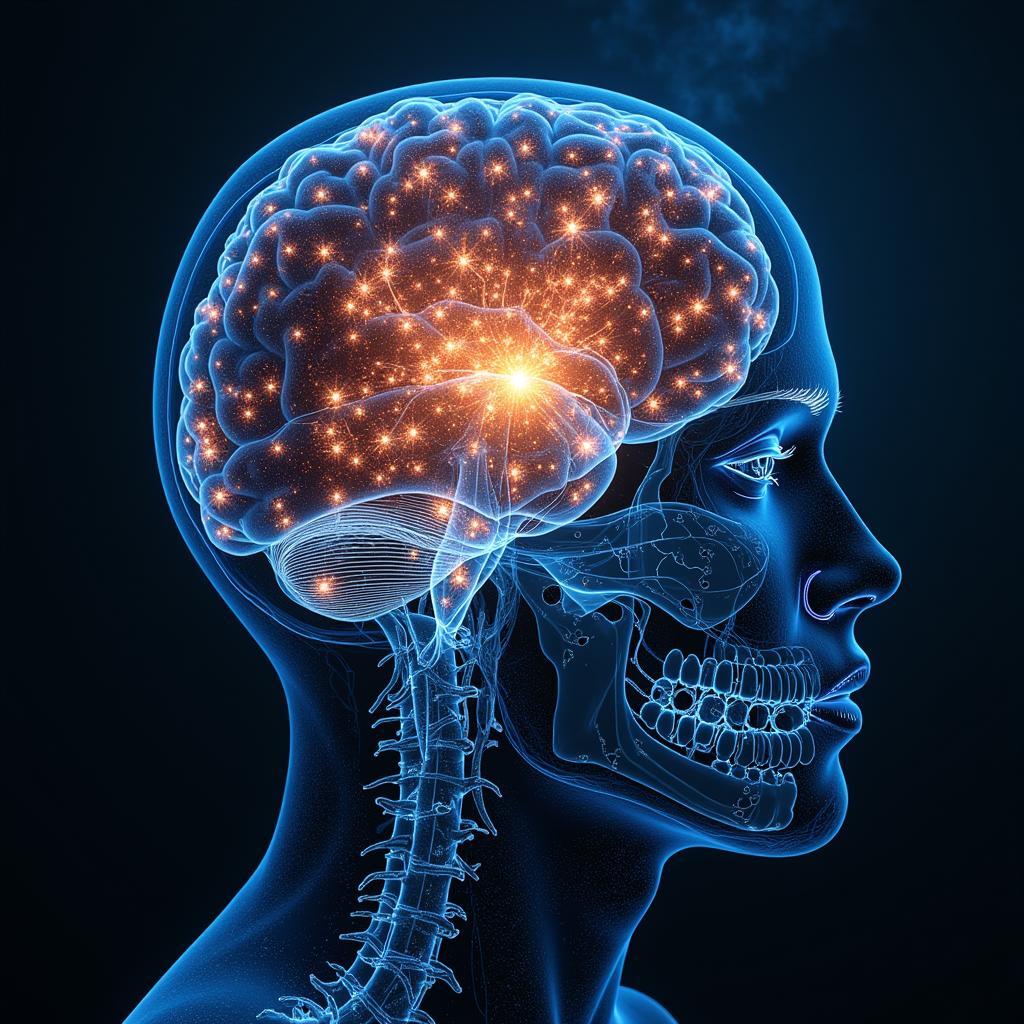Aphantasia Research explores the intriguing phenomenon where individuals are unable to create voluntary mental images in their minds. This lack of a “mind’s eye” has fascinated researchers and the public alike, prompting ongoing studies to understand its causes, implications, and potential treatments.
Unmasking the Invisible: What is Aphantasia?
Imagine reading about a vibrant sunset, the words painting a picture in your mind. Now, imagine that no matter how hard you try, that picture simply doesn’t appear. This is the reality for those with aphantasia, a condition characterized by the inability to visualize imagery voluntarily. While most people can conjure up mental pictures with varying degrees of vividness, individuals with aphantasia experience a blank canvas, their inner world devoid of visual imagery.
 Aphantasia Spectrum
Aphantasia Spectrum
A Spectrum of Imagination: Exploring the Different Types of Aphantasia
Aphantasia isn’t an all-or-nothing phenomenon. Research suggests that it exists on a spectrum, with individuals experiencing varying degrees of visual imagery impairment. Some people may experience a complete absence of voluntary visualizations, while others may have faint or fleeting images. This spectrum highlights the complexity of aphantasia and the need for further research to fully understand its nuances.
Living with Aphantasia: Challenges and Adaptations
While aphantasia is not considered a disorder, it can present unique challenges in daily life. Individuals with aphantasia may find it difficult to:
- Recall past experiences visually: Remembering a loved one’s face or a cherished vacation spot may require relying on other senses or factual details rather than visual memories.
- Engage in visual creative tasks: Activities like drawing, painting, or interior design may be more challenging without the ability to visualize the end product mentally.
- Follow certain instructions: Directions involving visual cues, such as navigating a new city or assembling furniture, may require alternative methods of comprehension.
Despite these challenges, many individuals with aphantasia lead fulfilling lives. They often develop coping mechanisms and leverage their strengths in other areas, such as verbal reasoning, logical thinking, and problem-solving.
Unraveling the Mysteries: Current Aphantasia Research
Researchers are actively investigating various aspects of aphantasia, including:
- Prevalence and demographics: Determining how common aphantasia is and if it affects certain populations more than others.
- Neural mechanisms: Identifying the brain regions and processes involved in visual imagery and how they differ in individuals with aphantasia.
- Genetic and environmental factors: Exploring the potential role of genetics, development, and life experiences in shaping visual imagery abilities.
- Therapeutic interventions: Investigating potential strategies to help individuals with aphantasia develop or enhance their visualization skills.
“Aphantasia research is still in its early stages,” notes Dr. Emily Carter, a leading neuropsychologist specializing in imagery disorders, “but every new study brings us closer to understanding the complexities of this fascinating phenomenon and developing effective interventions for those seeking to enhance their mental imagery abilities.”
Looking Ahead: The Future of Aphantasia Research
As aphantasia research progresses, we can anticipate a deeper understanding of the brain’s role in mental imagery and the factors that contribute to individual differences in visualization. This knowledge holds promise for developing targeted interventions to help individuals with aphantasia overcome challenges and unlock their full cognitive potential.
 The Future of Aphantasia Research
The Future of Aphantasia Research
Conclusion
Aphantasia research offers a captivating glimpse into the diversity of human cognition. While the absence of a “mind’s eye” may seem unfathomable to some, it highlights the remarkable adaptability of the human brain and the myriad ways we experience and navigate the world around us. As research continues, we can look forward to a future where the mysteries of aphantasia are unraveled, paving the way for greater understanding, support, and empowerment for those living with this unique cognitive experience.
For support and guidance on aphantasia or other cognitive phenomena, please don’t hesitate to contact us. You can reach our team 24/7 at Phone Number: 0904826292, Email: research@gmail.com or visit us at No. 31, Alley 142/7, P. Phú Viên, Bồ Đề, Long Biên, Hà Nội, Việt Nam.